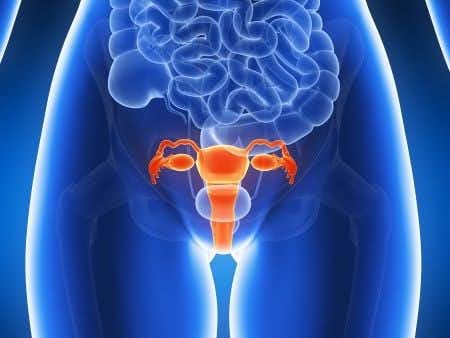Expert witnesses with specializations in urogynecology and biomaterials advise on a case involving female plaintiffs who underwent pelvic repair with mesh implants to relieve various urinary problems. They allege that the mesh, manufactured and marketed by the defendants, is defective and caused them debilitating pain and damage, requiring additional surgeries and ongoing treatment.
The plaintiffs assert that pelvic mesh products contain monofilament polypropylene mesh that, despite the defendants’ claims, is not inert. Scientific evidence shows that this material as implanted is biologically incompatible with human tissue and promotes a negative immune response in a large subset of the population that has been implanted with it. This negative response promotes inflammation of the pelvic tissue and can contribute to the formation of severe adverse reactions to the mesh. When mesh is inserted in the female body according to the manufacturers’ instructions, it creates a non-anatomic condition in the pelvis leading to chronic pain and functional disabilities, they assert.
The plaintiffs hired a urogynecology expert witness and contend that the defendants omitted the risks, dangers, defects, and disadvantages of their products and marketed them as safe medical devices when they knew or should have known that they were not and could cause catastrophic injuries. These products have high rates of failure and injury and complications, they assert.
Question(s) For Expert Witness
1. Is the mesh suitable for permanent implantation?
2. Did the defendant reveal the mesh’s inadequacies to doctors or the patients?
Expert Witness Response
The urogynecology expert witness is an assistant professor of obstetrics at a university medical center who has performed more than 1,000 pelvic floor surgical procedures, including abdominal sacrocolpopexy, uterosacral suspensions, sacrospinous ligament fixations, native tissue repairs, biological graft repairs and synthetic mesh repairs. He has used numerous synthetic pelvic mesh products, including defendant's products, and has performed over 200 surgeries dealing with complications related to synthetic mesh, including the removal of numerous devices.
In formulating my opinions and preparing this report, I reviewed scientific literature, corporate documents from the defendant, sample products and depositions of defendant’s employees.
In general, my expert opinions can be summarized as follows:
• Defendant's mesh is not suitable for its intended application as a permanent prosthetic implant for stress urinary incontinence because it degrades over time, causes chronic foreign body reactions, fibrotic bridging, mesh contracture/shrinkage, fraying, particle loss, roping and curling of the mesh, and loss of pore size with tension; defendant's disclosures of adverse reactions and mesh complications in its instructions for use (IFU) were inadequate based on the adverse reactions/risks and mesh complications known to defendant from the time the mesh was first sold and marketed until present day;
• Defendant did not disclose information to physicians in its IFUs regarding characteristics of the polypropylene in its mesh that make it unsuitable for its intended application as a permanent prosthetic implant for stress urinary incontinence, including that it degrades over time, causes chronic foreign body reactions, fibrotic bridging, mesh contracture/shrinkage, fraying, particle loss, roping and curling of the mesh., and loss of pore size with tension;
• Defendant failed to adequately describe, inform or explain to physicians how to properly “tension” the mesh and inform them that improper tension on the mesh decreased effective pore size and interfered with incorporation into tissue;
• Defendant did not inform physicians and their patients that Manufacturer Safety Data Sheets (MSDSs) for polypropylene resin used to manufacturer polypropylene meshes warned against use of the mesh in a permanently implanted medical device and that studies showed that it caused sarcomas in laboratory rats;
• Defendant did not properly inform physicians and their patients that toxicity testing of the polypropylene mesh revealed that it was cytotoxic;;
• Defendant's promotional materials sent to physicians related to its mesh were inaccurate and failed to reveal material facts about complications and conflict of interests regarding data promoted in the materials;
• Defendant's patient brochures misstate information regarding complications and success rates and overstate the benefits of the mesh and understate the risks.
About the author
Kristin Casler
Kristin Casler is a seasoned legal writer and journalist with an extensive background in litigation news coverage. For 17 years, she served as the editor for LexisNexis Mealey’s litigation news monitor, a role that positioned her at the forefront of reporting on pivotal legal developments. Her expertise includes covering cases related to the Supreme Court's expert admissibility ruling in Daubert v. Merrell Dow Pharmaceuticals Inc., a critical area in both civil and criminal litigation concerning the challenges of 'junk science' testimony.
Kristin's work primarily involves reporting on a diverse range of legal subjects, with particular emphasis on cases in asbestos litigation, insurance, personal injury, antitrust, mortgage lending, and testimony issues in conviction cases. Her contributions as a journalist have been instrumental in providing in-depth, informed analysis on the evolving landscape of these complex legal areas. Her ability to dissect and communicate intricate legal proceedings and rulings makes her a valuable resource in the legal journalism field.



